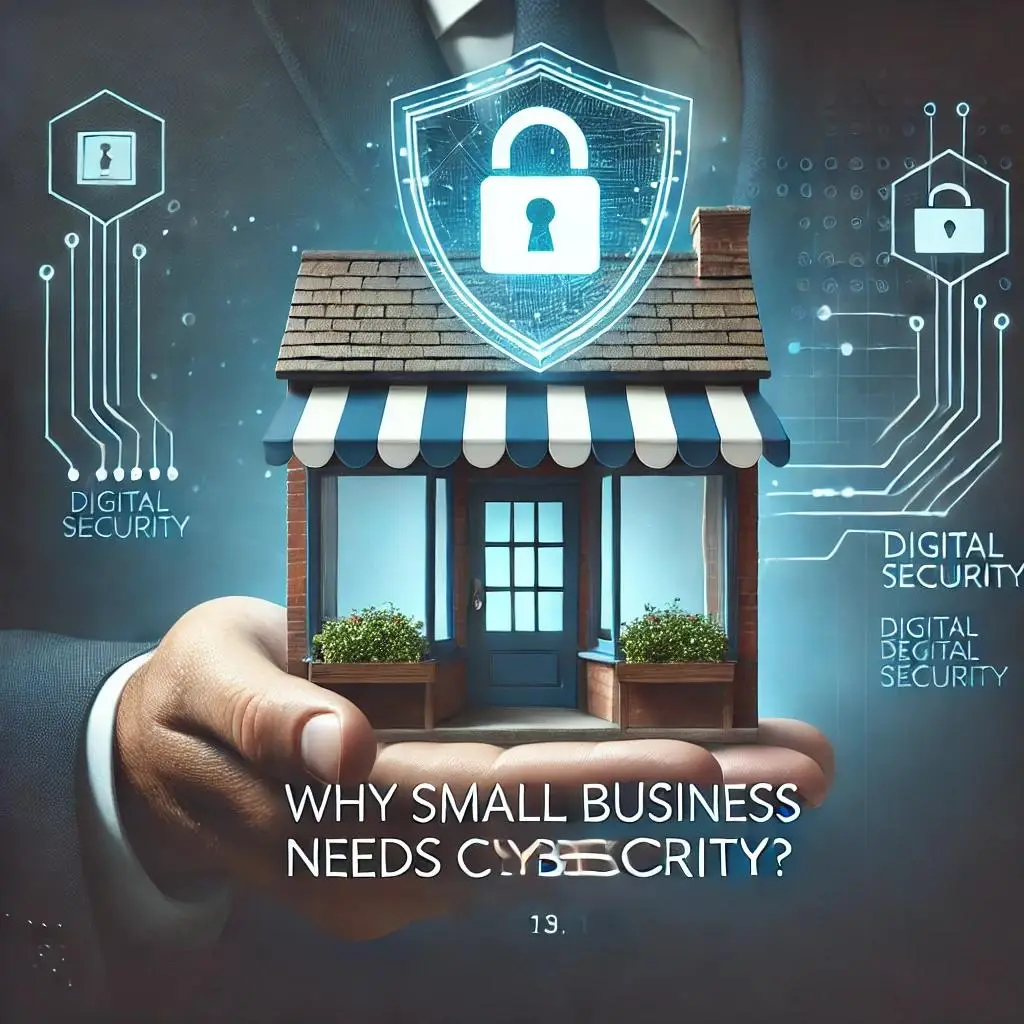In today’s digital landscape, cybersecurity isn’t just a concern for large enterprises with extensive resources; it’s critical for businesses of all sizes. Cyberattacks on small businesses are on the rise, with hackers often viewing them as easier targets due to fewer security defences. In reality, small companies can suffer just as much—if not more—from the consequences of a cyberattack, including financial loss, reputation damage, and potential closure.
This blog explores why small businesses need robust cybersecurity strategies, highlights the common risks, and provides actionable steps to strengthen security without breaking the bank.
The Myth: “We’re Too Small to Be Targeted”
One of the biggest misconceptions among small business owners is that cybercriminals won’t target them due to their size. However, statistics show the opposite. According to recent studies, nearly 43% of cyberattacks target small businesses. This misconception leaves many small businesses vulnerable, making them prime targets for phishing, ransomware, and malware attacks.
Why Small Businesses Are Targets:
- Perceived Lack of Security: Hackers assume small businesses have minimal cybersecurity defences, making them easier to infiltrate.
- Valuable Data: Small businesses often handle sensitive data—customer information, payment details, and intellectual property—that can be valuable to hackers.
- Supply Chain Vulnerabilities: Many small businesses work with larger organizations as part of the supply chain, meaning that compromising a small business can provide access to a bigger target.
The Impact of Cyberattacks on Small Businesses
Unlike larger enterprises with dedicated resources to recover from cyber incidents, small businesses may not have the funds or resources to bounce back after an attack. Cyberattacks can be devastating for small businesses, often resulting in:
- Financial Loss: Small businesses may incur high costs related to data recovery, customer notifications, and potential legal fees, which can be crippling.
- Loss of Customer Trust: A data breach can significantly damage customer trust, leading to lost business and reputational harm that can take years to rebuild.
- Operational Disruption: Cyberattacks often halt operations, preventing businesses from serving customers, fulfilling orders, and maintaining revenue flow.
- Regulatory Fines and Penalties: Compliance with data protection regulations like GDPR, HIPAA, and PCI DSS is essential. A breach could lead to fines and legal consequences if these regulations are not met.
Essential Cybersecurity Strategies for Small Businesses
To protect against cyber threats, small businesses need to adopt robust cybersecurity strategies, even with limited budgets. Here are key measures that can make a significant impact:
- Employee Training and Awareness:
- Educate employees on cybersecurity best practices, such as recognizing phishing emails, avoiding suspicious links, and securing their passwords.
- Implement regular training sessions to keep employees up-to-date on the latest threats.
- Use of Strong Passwords and Multi-Factor Authentication (MFA):
- Encourage employees to create complex, unique passwords and change them regularly.
- Implement MFA for sensitive accounts, adding an extra layer of security.
- Data Backup and Recovery Plans:
- Regularly back up important data to ensure quick recovery in the event of a cyberattack or system failure.
- Store backups in secure locations, ideally offline, to protect them from ransomware attacks.
- Network Security and Firewalls:
- Use firewalls to protect your network from unauthorized access.
- Invest in reliable antivirus software and keep all software up-to-date to prevent malware infections.
- Implement Endpoint Security:
- As remote work becomes more common, secure all devices (endpoints) that connect to your network, including employee laptops and mobile devices.
- Consider using endpoint protection software that monitors and secures all entry points.
- Regular Security Assessments and Vulnerability Scanning:
- Conduct regular security assessments to identify vulnerabilities in your systems.
- Use vulnerability scanning tools to detect potential weaknesses and take proactive measures to fix them.
Cost-Effective Cybersecurity Solutions for Small Businesses
Small businesses often operate on tight budgets, but cybersecurity doesn’t have to be prohibitively expensive. Here are affordable solutions:
- Cybersecurity Insurance: Consider investing in cybersecurity insurance to help cover financial losses in case of a breach.
- Cloud Security Solutions: Use secure cloud providers for data storage, as they offer built-in security features that can be more affordable than setting up on-premises infrastructure.
- Managed Security Services: Partner with a managed security service provider (MSSP) to receive professional monitoring, threat detection, and response without the need for an in-house team.
The Role of Compliance in Cybersecurity
For small businesses, compliance with standards like PCI DSS and NIST CSF can guide effective cybersecurity practices. These frameworks outline basic security measures that help reduce cyber risks and can also make your business more trustworthy to customers and partners.
- PCI DSS: Protects payment card information, crucial for businesses handling credit card transactions.
- NIST CSF: Provides a flexible cybersecurity framework that can help small businesses identify, assess, and manage cyber risks.
Conclusion: Cybersecurity is a Must for All Businesses, Big or Small
In a world where cyber threats are evolving rapidly, small businesses can no longer afford to overlook cybersecurity. A robust cybersecurity strategy not only protects valuable assets but also demonstrates a commitment to customer trust and regulatory compliance. By implementing proactive, cost-effective security measures, small businesses can safeguard their future and thrive in a digital world.
Folksoft offers customized cybersecurity solutions tailored for small businesses, helping you protect your business from cyber threats without overstretching your budget. Contact us to learn more about how we can enhance your security strategy and ensure your business is safe, secure, and resilient.



Comments are closed